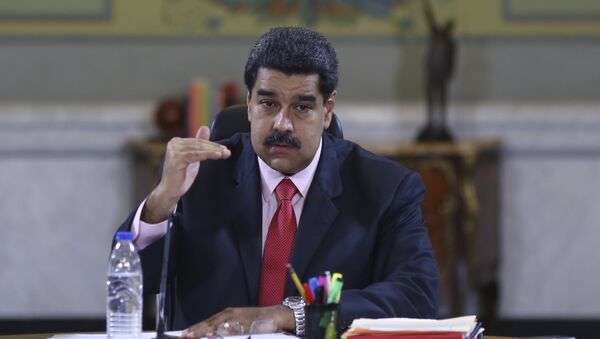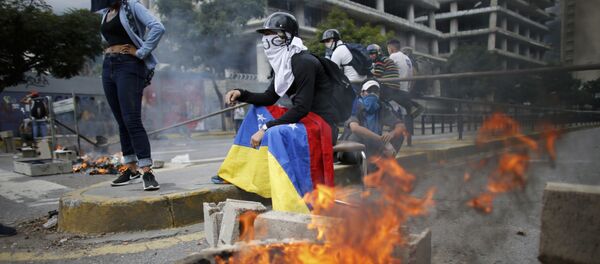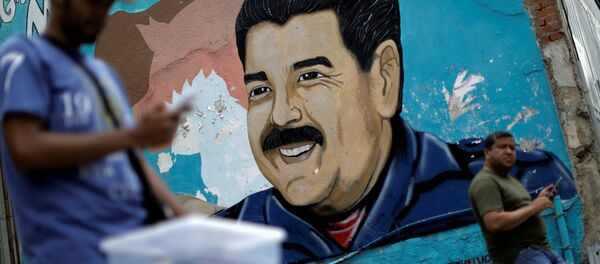Radio Sputnik’s Loud and Clear spoke with Carlos Ron, charges d’affaires at the Venezuelan embassy in Washington, DC, about the sanctions and the reality of Venezuelan politics often obscured by the US media.
"Once again Venezuela rejects sanctions, because not only do we think they are unilateral, but they’re also illegal and in violation of international law." Wednesday’s sanctions were particularly egregious because they were leveled at people engaging in mundane political activities like campaigning for the Constituent Assembly, he said.
"The message that is sent to the Venezuelan public is that the US is sanctioning people for political reasons. It’s sort of a criminalization of political activity itself … that’s striking, and a very dangerous precedent for everybody around the world," he warned.
This seems to be a fulfillment of threats by US Treasury Secretary Steven Mnuchin, who said in a July 31 statement, "Anyone who participates in this illegitimate [Constituent Assembly] could be exposed to future US sanctions for their role in undermining democratic processes and institutions in Venezuela."
Ron explained that Venezuela’s Constituent Assembly operates by including marginalized groups in the country like rural workers and people with disabilities in the supra-governmental legislative body.
"There are different sectors that have traditionally been excluded from Venezuelan politics and society who this time got an opportunity to be represented," he said. "So the purpose of a constituent assembly is to take the constitutional text and update it and make it real in accordance to today’s necessities and today’s challenges for the population."
Sputnik news analyst Walter Smolarek, sitting in for host Brian Becker, made note of US headlines indicating that Washington is preparing to sanction Venezuela’s oil industry and asked what issues that would raise in Venezuela’s commodity-dependent economy.
Ron replied, saying, "This is a problem that Venezuela has had for many years. If you look throughout Venezuelan history, the production of one single product that rules the economy is not new and didn’t start with oil. We had it before with coffee and with chocolate, so we have a structure of society that needs to be updated. It goes back 300 years, it’s a legacy of colonialism … that has to transform."
Smolarek also pointed out that several right-wing mayors in Venezuela had been arrested or had arrest warrants issued for them. He said in the US this is portrayed as the Maduro government bullying the mayors, when in fact the issue seems to be between municipalities and the judicial system.
The diplomat agreed and added, "You also have to take into account the national perception of things that are going on. I think in part, one of the messages sent by the population on the day of the Constituent Assembly vote was the rejection of the violence that has been taking place."
Ron claimed that some of the municipal leaders helped facilitate right-wing violence by doing things like turning a blind eye to opposition forces constructing brick walls in the middle of roads to deter people from voting in the Constituent Assembly election.
"What the courts are doing is holding these mayors accountable," he explained. "[As a mayor] you have to guarantee everyone’s right to mobility, to peace. Protest is fine, and that is something we always reiterate, but there’s a big difference between that and trying to cause violence and hamper people’s lives in this way."




